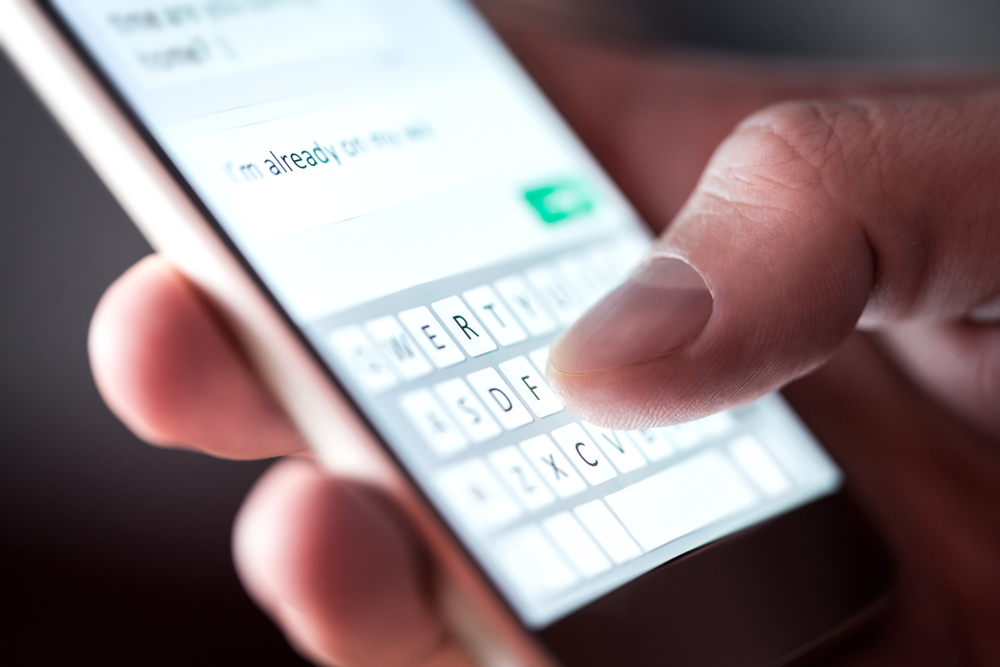Sometimes you’re not trying to offend anyone—you’re just living your life, doing your thing. But here’s the truth: certain behaviors, even when unintentional, send signals that make people feel disrespected, dismissed, or flat-out annoyed. And the worst part? You often don’t realize you’re doing it until the damage is done.
These subtle habits don’t make you a bad person, but they do shape how people perceive you, and the gap between your intentions and their reactions can quietly wreck your relationships. If you’re serious about leveling up your emotional intelligence, it’s time to stop making these common mistakes. Here are 13 behaviors that make you seem rude, even when you’re not trying to be.
1. Checking Your Phone While Someone Is Talking

You might think you’re multitasking, but when you glance at your phone mid-conversation, it signals one thing: “You’re not as important as whatever’s on my screen.” As explained by a study led by psychologist Shalini Misra, the mere presence of a smartphone during face-to-face conversations reduces the quality of interaction, making people feel less connected and less fulfilled in the conversation.
Even briefly pulling out a phone can distract participants and diminish empathy and closeness, showing how phone use sends a clear message of distraction and disengagement.
2. Starting Sentences With “Actually…”

It might feel like you’re just clarifying or adding information, but starting with “Actually…” can come off as condescending, like you’re swooping in to correct or one-up. It puts the other person on the defensive, even if you didn’t mean to. This one small word can quietly erode trust and connection.
People don’t want to feel corrected—they want to feel heard. And when you lead with “Actually…,” you make it about proving yourself, not understanding them. That shift in tone changes the entire energy of the conversation.
3. Interrupting With “Just A Quick Thing”

Jumping in with a “quick” comment might feel harmless, but it can make the other person feel like their words don’t matter. It’s a subtle way of hijacking the conversation, even if you’re trying to help. As The Cut points out, interruption culture is often unconscious, but it sends a loud message: “My thoughts are more important than yours.”
This dynamic builds resentment over time. According to Verywell Mind, interrupting someone—even with a “quick” comment—can be a way of exerting control or expressing impatience, and often happens unconsciously.
4. Dishing Out Unsolicited Advice

You might think you’re being helpful by offering solutions, but unsolicited advice often feels like judgment. It suggests that the person isn’t capable of figuring things out on their own. Even when it comes from a place of care, it can land as condescending or intrusive.
Before you jump in, ask: “Would you like my thoughts, or do you just want to vent?” That one question shows respect for their autonomy. And it can prevent a lot of unnecessary tension.
5. Not Saying Hello When You Enter A Room

It sounds small, but skipping a basic “hello” can make you seem cold, aloof, or disinterested. A simple acknowledgment creates a sense of warmth and connection. Research led by Dr. Esra Ascigil and colleagues highlights that even minimal social interactions like greeting and thanking strangers can significantly boost life satisfaction and foster a sense of belonging, which is a fundamental human need.
When you don’t greet people, you send the message that you don’t value their presence. It’s not about being formal—it’s about making others feel seen. And that matters more than you think.
6. Ending Texts With A Period

It might seem absurd, but a text with a period can feel passive-aggressive or cold, especially to younger generations. What you see as proper punctuation, others read as a sign of formality or annoyance. It’s a classic case of intention vs. interpretation.
This small habit can make your messages feel curt when you didn’t mean them to. And the result is a subtle layer of tension that adds up over time. Adjusting your tone—whether with an emoji or a more casual sign-off—can soften the vibe.
7. Not Making Or Maintaining Eye Contact

Looking away during a conversation can make you seem disinterested or even dismissive. It tells the other person that you’re not fully engaged, even if that’s not your intention. Eye contact is a basic human cue for connection, and without it, people feel shut out.
In a recent article by the Corporate Learning Network, research highlights that real and direct eye contact holds our attention and promotes trust, especially when people say things we might be unsure about. This shows that eye contact is a powerful tool for rebuilding trust and connection in both personal and professional settings.
8. Being Late Without Acknowledgment

Running late happens, but when you show up without saying a word about it, it sends a message: “My time matters more than yours.” It’s not just about the clock—it’s about respect. A simple “Thanks for waiting” can shift the whole tone.
When you don’t acknowledge the impact, it feels dismissive. People want to feel like their time is valued. And when you ignore that, they remember.
9. Laughing At The Wrong Moment

Nervous laughter is a human reflex, but it can be wildly misinterpreted. Laughing when someone shares something serious or vulnerable can feel like mockery, even if you’re just uncomfortable. It’s a tiny behavior that can leave someone feeling humiliated.
This isn’t about suppressing your reactions—it’s about awareness. If you notice it happening, pause, apologize, and clarify your intention. That small repair makes all the difference.
10. Dominating The Conversation With Your Own Stories

It’s natural to relate someone’s story to your own—but when you make it a pattern, it starts to feel like a competition. The subtle message is: “Let’s make this about me.” It can leave the other person feeling unheard and unimportant.
The art of conversation is sharing space, not filling it. If you notice you’re always jumping in with your own stories, pause. Ask a question instead of making a point—it shows you’re listening, not just waiting to talk.
11. Giving A Half-Hearted Apology

“I’m sorry *you* feel that way” is not an apology—it’s a deflection. It shifts responsibility away from your actions and makes the other person feel like they’re overreacting. A real apology takes ownership, no matter how small the issue.
Half-apologies feel dismissive and insincere. People want to feel seen and understood, not brushed off. Owning your impact is a sign of maturity, not weakness.
12. Acting Distracted During Emotional Moments

When someone’s opening up to you and you’re half-listening, checking your watch, or fidgeting with your phone, it feels like a gut punch. You might think you’re multitasking, but they feel dismissed. It signals: “Your feelings aren’t important enough to have my full attention.”
This behavior might not be intentional, but it erodes trust and emotional safety. When someone’s vulnerable, your presence is the message. And the more distracted you seem, the more they’ll pull away.
13. Using Sarcasm To Deflect Real Conversation

Sarcasm can be funny, but it can also be a way to avoid real talk. When you use humor to dodge vulnerability, it leaves people feeling dismissed and shut out. What you think is “just joking” can feel like rejection.
It’s a defense mechanism that keeps you from getting too close. And while it might feel safe, it leaves others feeling like they can’t connect with the real you. Being direct, even when it’s messy, is what builds trust.

Abisola is a communication specialist with a background in language studies and project management. She believes in the power of words to effectively connect with her audience and address their needs. With her strong foundation in both language and project management, she crafts messages that are not only clear and engaging but also aligned with strategic goals. Whether through content creation, storytelling, or communication planning, Abisola uses her expertise to ensure that her messages resonate and deliver lasting value to her audience.


